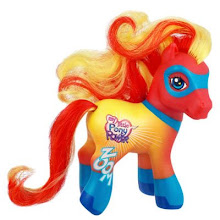Cocalero
Recently the U.S. has directed its war on drugs against Bolivian coca-growing regions, and the Bolivian government has attempted to eradicate coca crops, devastating the livelihood of indigenous people who cultivate it. In response, the farmers formed a powerful union. Their leader is the Aymara Indian Evo Morales, and in 2005, this unwavering, unpretentious socialist made an historic bid for the presidency.
A lively story about geopolitics, people's movements, indigenous culture and one man's impressive determination, Cocalero closely follows Evo's campaign, getting up close and personal with the candidate and the union organization backing him, while presenting critical views of both. What makes Evo so fascinating is how unlikely a candidate he is. A relaxed 40-something bachelor who sports blue jeans and sneakers and lives in a one-room house, he drinks beer with his cronies and goes swimming in his underwear. Yet he moves effortlessly from formal fund-raising dinners to mass rally, charismatically proposing the redistribution of wealth, renationalization of industries and legalization of coca products.
Not surprisinly, Evo's populist platform elicits strong responses. After he addresses Venezuela's Hugo Chavez as "Commandante," Bolivian TV questions whether Evo is on Chavez's payroll, and his presence at the airport elicits racist epithets. But Evo, defender of Bolivia's first people, wins by an unprecedented majority. Cocalero offers fresh insight into big political changes afoot in Latin America.
(Caroline Libresco, 2007 Sundance Film Festival catalog)
~*~*~*~*~*~*~*~*~*~*~*~*~*~*~*~*~*~*~*~*~*~*~*~*~*~*~*~*~*~*~*
I've seen the president of Bolivia in his underwear.
This film follows Evo Morales on the campaign trail during his bid for the presidency, and the only thing it proved to me is that politicians - regardless of their nationality, their stance on issues, their personal credo - are all the same guy. Morales, like every other politician in the world, talked endlessly about himself - about his opinions of things, about what other people were saying about him, about how much other people were willing to do for him. He surrounded himself with sycophants who said things like "sure, we have a law against a president serving for more than two terms, but it shouldn't apply to him."
The dialog was entirely in Quechua, Aymara and Spanish, and the subtitles were awful. If you saw Lost in Translation, you'll remember Bill Murray listening to the Japanese director going on at length, and the assistant translating his 45-second long speech into "More intensity, please." Bill Murray kept asking "Is that all he said?" In Cocalero that is most assuredly NOT all he said, but that's all you're getting of you don't speak Spanish.
Much of the film used a handheld camera that bounced and joggled and washed out all the color when the candidate went outside, and I ended up feeling a little carsick in places. The principal characters - the vice-presidential candidate, Evo's driver, the local union leader from Evo's hometown - were re-introduced in every single scene, an unnecessary distraction.
Another distraction was how very much Morales and his party hate the U.S. and its policies. Their official party slogan ends with "Death to Yankees!" It made me wonder what kind of reception the director was hoping for. It's hard to sympathize with a guy who wants to kill you.
The Pirate and I were scheduled for two films back-to-back, and the way Sundance works is that the line starts forming almost an hour before the film starts, so we ended up having to leave before the movie actually ended. The director was standing outside and spoke to us as we were handing in our ballots, and he complained that we were going to miss the end of the picture. I said, "He wins!" and the director, Alejandro Landes, whines "No, it's very special!" (a term he used for everything).
To satisfy my own curiosity and because I knew I would miss the Q&A after the film, I asked Landes "Does Evo own a tie?" Not once during the entire film do you ever see Morales in anything more formal than a polo shirt, and normally he's in a t-shirt and jeans. Landes laughed and said "You should stay for the end! The end of the film is all about your question!" It turns out, he does not ever wear a tie.
My curiosity having been satisfied, I don't feel the need to see the end. This was Landes' first movie, and I think he has some rough corners to knock off.
The Pirate says: As a film, it was obviously a freshman effort, and as a political documentary it was a little less interesting than the documentary of Clinton's first presidential run.
My score: 2
The Pirate's score: 2
Thursday, January 25, 2007
Sundance Film #3: Cocalero
Subscribe to:
Post Comments (Atom)




No comments:
Post a Comment